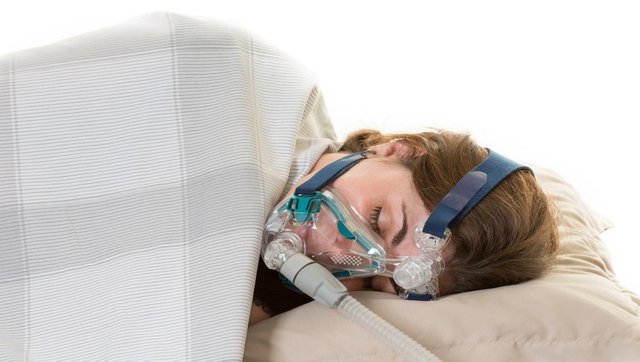Causes of sleep apnea and prevention
It was previously thought that the phenomenon of obstructive nighttime obstructive sleep apnea is just a feature of some people, or a sign of aging, but today's doctors know that it has dangerous implications for the owner, and that it must be treated without delay.
Here are the reasons for this health bug and tips for prevention:
- Causes and manifestations
The phenomenon of night apnea due to an obstruction of the upper respiratory passages, resulting from the relaxation of the pharynx muscles that support the tongue and the palate and palate, which causes the tongue to fall back and temporarily impede the passage of air to the throat.
This airway obstruction causes high oxygen loss and hypoxia (10 to 20 seconds), prompting the brain to wake up for a moment to breathe again, but with noisy snoring, noise and annoying approaches.
The cycle is repeated from 5 to 30 hours per hour during the night, causing the sufferer to lose sleep, feeling dry and tired (and perhaps headaches and poor concentration) the next day, although the casualty is rarely aware of what happened.
* Factors that prepare for their occurrence
This phenomenon may occur to anyone, but some factors make it more likely:
Weight gain
A characteristic characterized by about half of the injured, and explain the presence of grease around the upper respiratory passages that hinder breathing at night, and show weight gain especially in the middle of the body.
2- Thickness of the neck
If the circumference of the neck was more than 42 cm for men, and 40 cm for women, chances were higher.
3 - constriction pharynx
Either because of congenital causes, or for large tonsils, nipples, or tongue hyperplasia.
Chronic nasal congestion.
5. Sex: Males are twice as likely as females.
6 - age .. This problem occurs for those who are older age, although it may occur in adolescents and children.
Smoking, alcohol, sleeping pills, diabetes, or high pressure.
8 - Sleep in the position of lying on the back .. The symptoms appear in this situation more than other sleep situations.
9. Snoring during sleep.
10 - the incidence of some chronic diseases .. such as diabetes, heart disease and hypertension.
If you are at risk of obstructive sleep apnea, the following tips will help you avoid the consequences of this disease and its complications:
1 - lose weight .. This, in addition to opening the upper respiratory tract, improves the performance of your cardiovascular system and saves your health as a whole.
2 - Regular exercise, which includes the two types of antibiotic and resistance exercises, for half an hour, and at least five days a week.
- Stop smoking.
4 - Avoid hypnotic drugs and sedative and drinking alcohol. - Treat chronic rhinitis, and keep the upper airway open during sleep.
6 - Sleep on your side instead of sleeping on your back, to prevent clogging of the throat tongue and palate (of the tricks used in this field sew a tennis ball on the back of the pajamas).

Source and more information
https://www.rd.com/health/
Good information, I have a friend who suffers from sleep apnea who fell asleep driving and hit a tree, nothing happened to him, but a scare. thanks for your post friend.
I wish you and his health and safety always
This post has received a 3.27 % upvote from @boomerang.
Good infomation, I work in a dental office and a device we sometimes make people is called silent night which helps to open the airway. It can work on some cases but not all.
There are many treatments such as peppermint oil
شكرا للمشاركة .
حصلت على تصويت من
@arabsteem curation trail !
** يسرنا اعلامك انه يمكنك الحصول على تصويت اضافي عبر ارسال مبلغ ضمن
0.05 - 0.15
ستيم او اسبيدي الى حساب التصويت الالي الجديد
@arabpromo
مع رابط المقال في حقل المذكرة (memo)
مما يتيح لك الحصول على تصويت من 0.10 الى 0.40 :)**